Karen Kraven | Lull
April 4 – May 9, 2020
Virtual Events & Links
Read Jaclyn Bruneau’s Exhibition Text
Karen Kraven & Jaclyn Bruneau in Conversation
Anne Boyer’s Garments Against Women Bookclub with Kim McCollum
Listen To Kraven’s interview with CKUA’s Tony King
“Wikipedia says the sewing machine reduced average garment construction time from 14 hours to 2 hours. Somewhere on a sewing blog someone wrote of making new garments from existing ones: 'use every part of the garment' and 'each garment holds in it hours of a garment worker's life.'... The fabric still contains the hours of the lives, those of the farmers and shepherds and chemists and factory workers and truckers and salespeople and the first purchasers, the givers-away, who were probably woman who sewed.”
— Anne Boyer - “Sewing” in Garments Against Women
Karen Kraven’s exhibition Lull has arrived at Latitude 53 in the midst of an unprecedented moment in our recent history, where issues of labour, production and visibility are immensely vital topics to consider. At this moment, the outbreak of COVID-19 has put much of the global economy on pause, and we will likely emerge from this pandemic in the throes of a global recession.
Kraven has been concerned with issues of production and the body’s refusal to work throughout her practice, pulling back the curtain on the garment workers (the vast majority of which are women) who work at the very margin of visibility, and whose revolutionary actions in the 1930’s broke the spell of production cycles.
When the wheels of production stop, be it through intentional acts of protest or through unexpected environmental forces, how do we reconsider the shape and value of our labour?
Through her research, Kraven questions what it means to interrupt production, and how to start working again, for the better. The work in Lull evokes both the presence and absence of the body, and points to the instability of the body itself: interrogated, exhausted and disappearing. What does it mean to stop producing? What are the political and societal implications of doing so?
Kraven’s specific use of denim creates a connection to Edmonton’s famous Great West Garment company, and the history of denim as a rugged utilitarian fabric worn by workers. At this moment in time, it is the role of the often overlooked and under-appreciated workers whose essential labour is finally being recognized and understood.
Kraven’s Lull has arrived at a strange time. The need for social distancing has already vastly changed the current social order, and it will inevitably change the way that this work is seen. Latitude 53 will be closed to the public when this exhibition opens; much of the experience will be relegated through online and written means.
What does it mean for this work to be installed in a gallery that may not ever be open to the public?
Artists and cultural workers are often under intense pressure to be productive; our livelihoods are built on uncertain foundations. Lull creates an environment of interrupted labour made visible. The exhibition asks us to reconsider the value of our labour and to seek out the faces and voices of those whose hands have woven the material of our world, often for no recognition at all.
Karen Kraven is a Montreal-based artist working with photography, sculpture and installation. Influenced by her father's (and his father's) knitting factory that stopped manufacturing the year she was born and by the physical and optical properties of textiles, her practice explores the ways clothing registers the body–how the body is unfinished, unstable and under interrogation–pointing to the sustained impact of work, wounds and wear.
Recent solo exhibitions include Dust Against Dust, Parisian Laundry, Montreal (2019), Pins & Needles at the Toronto Sculpture Garden (2018), Deadstock, Maw Gallery, NYC (2017), Flip Flop Punch Front, Mercer Union, Toronto (2015) and Razzle Dazzle Sis Boom Bah presented at the ICA, Portland, Maine and the Darling Foundry, Montreal (2014/5). Her work has also been included in exhibitions in Toronto, Marseille, Mumbai and Baltimore. Reviews have been published in C Magazine, Canadian Art, Momus and Artforum. Karen Kraven is represented by Bradley Ertaskiran in Montreal.
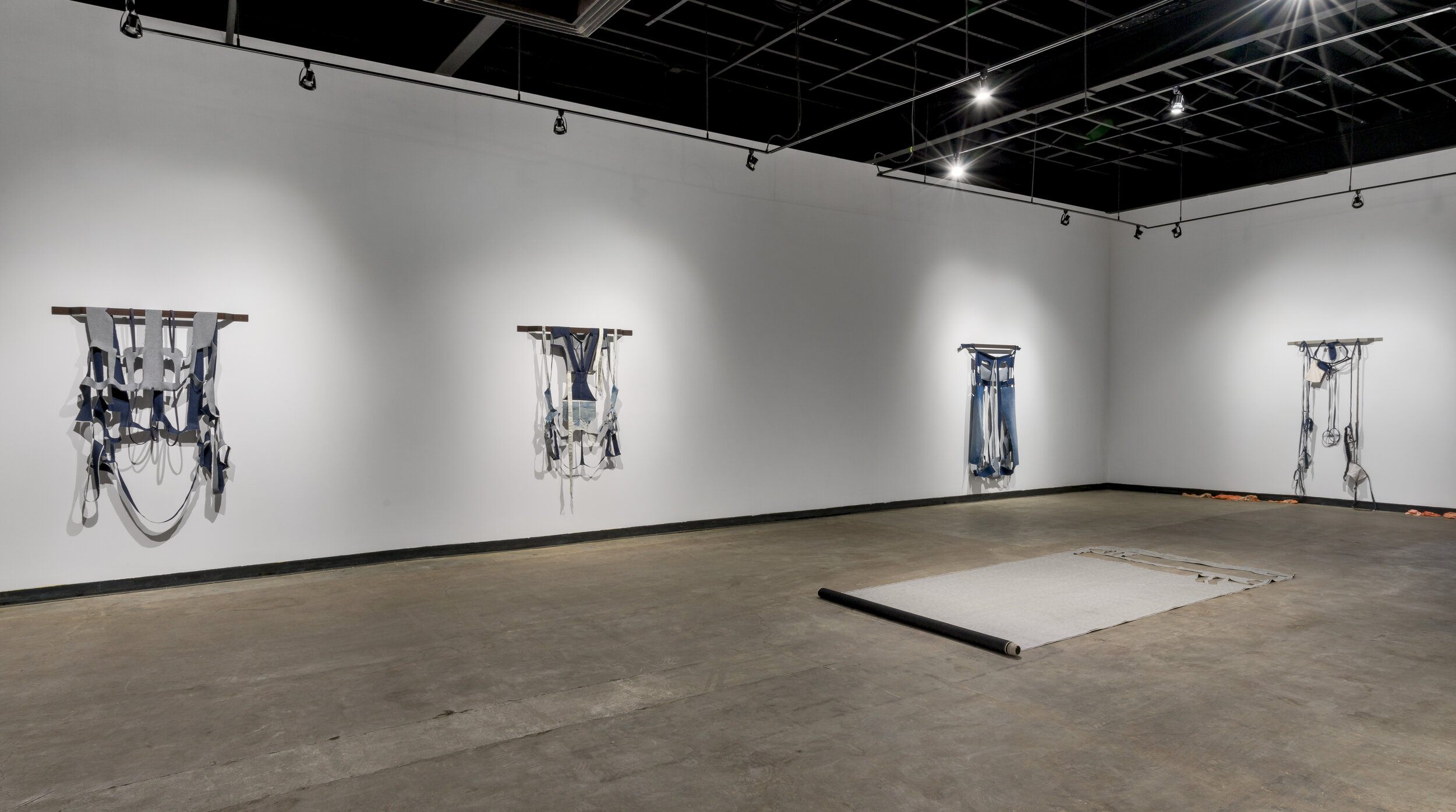
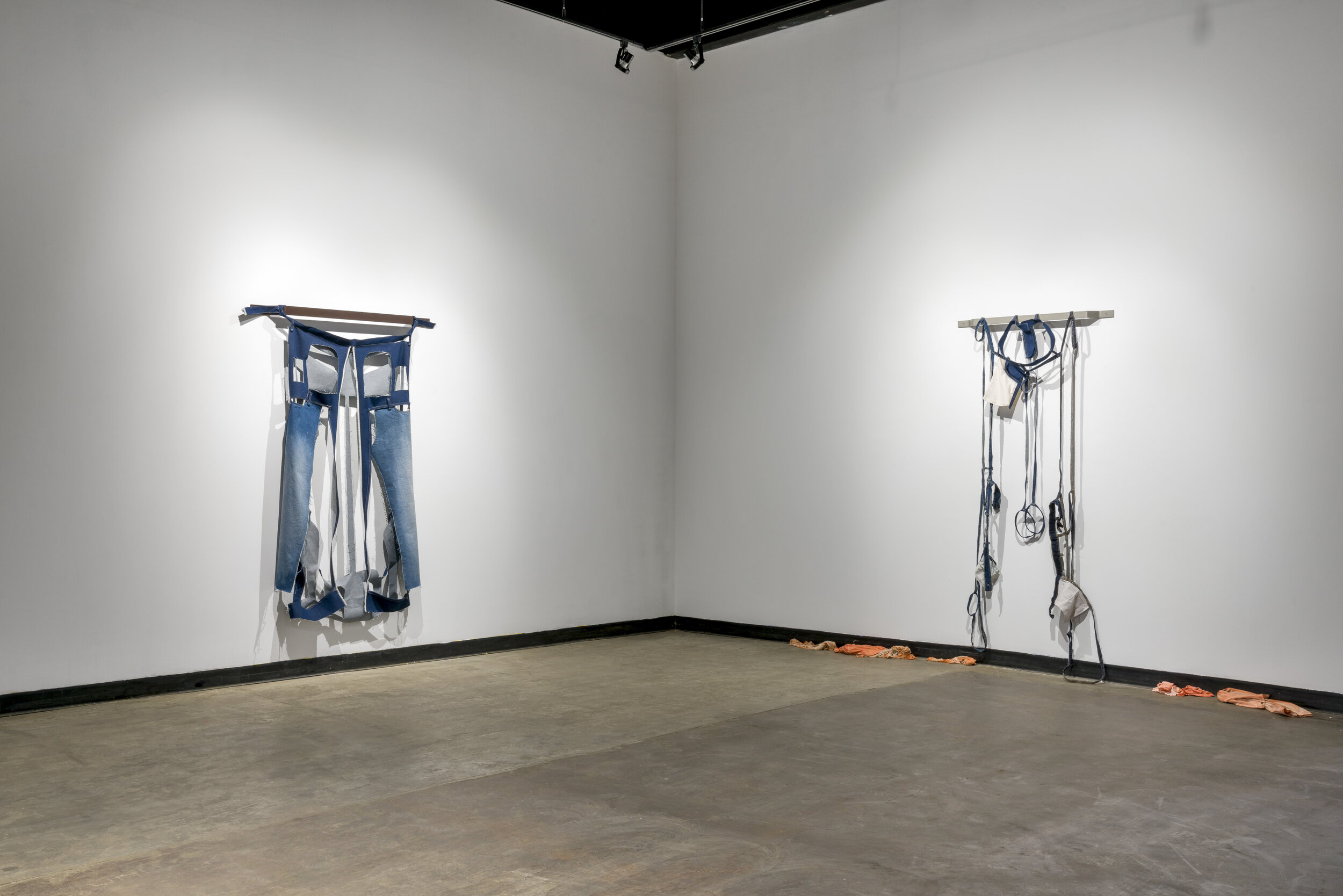
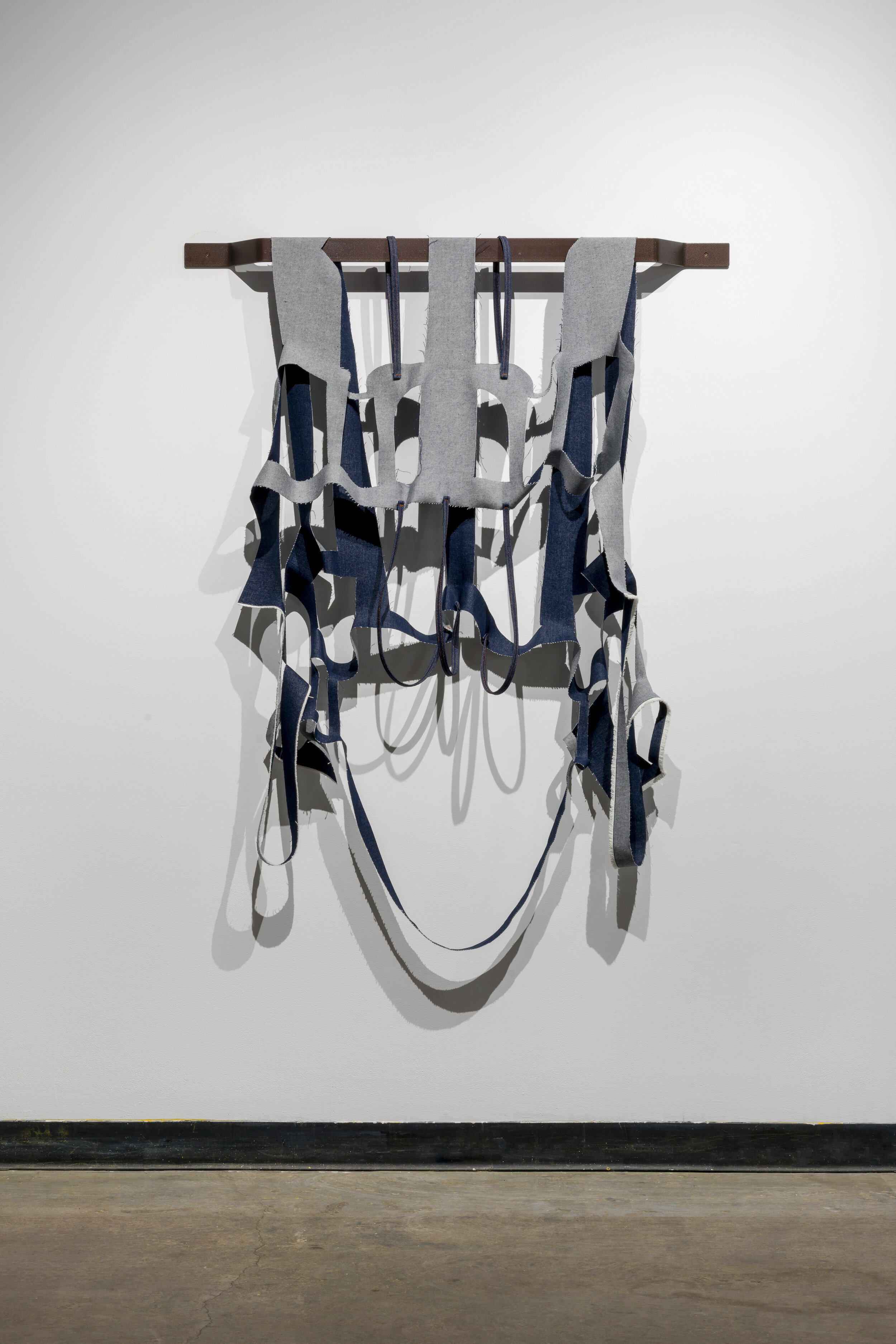
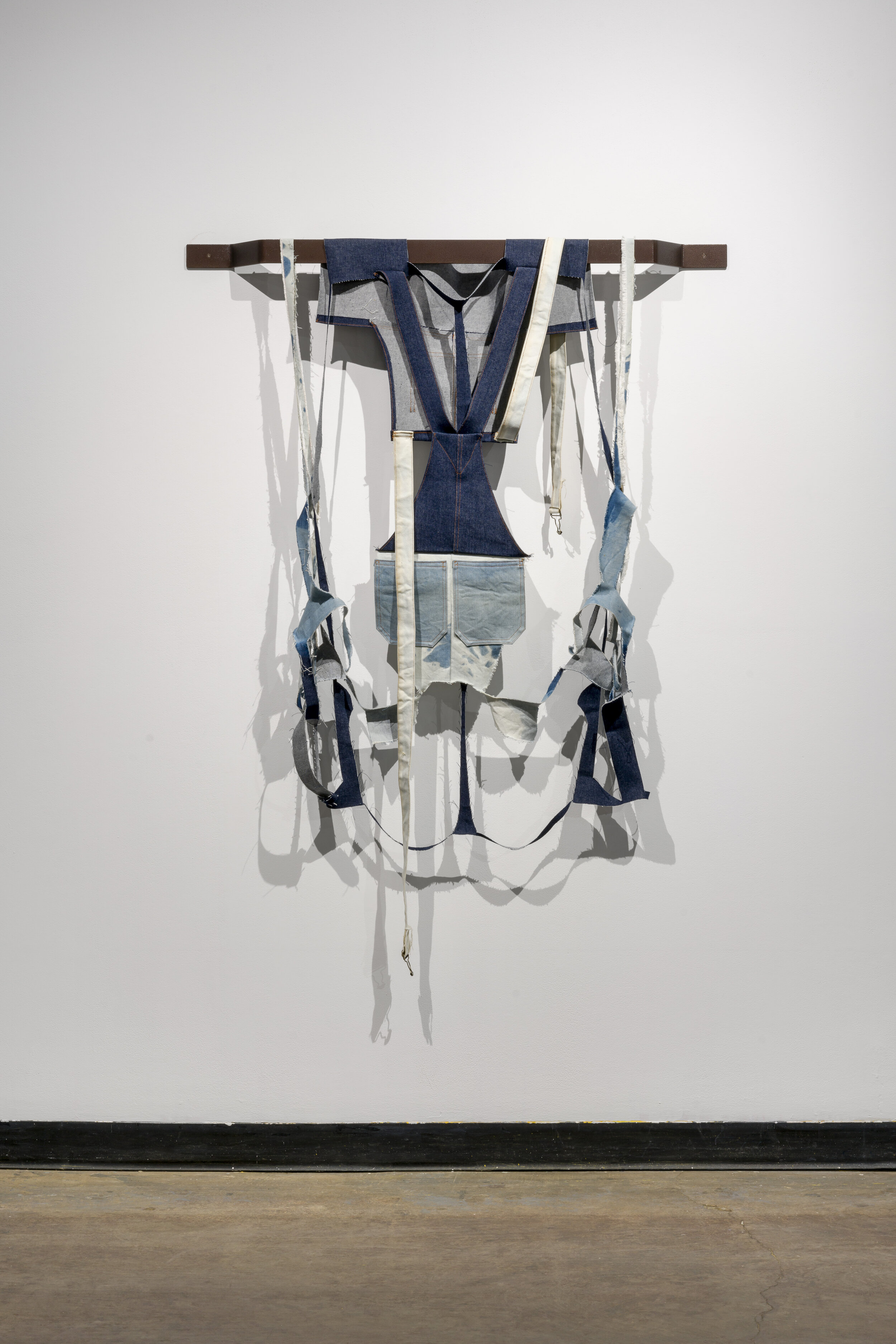
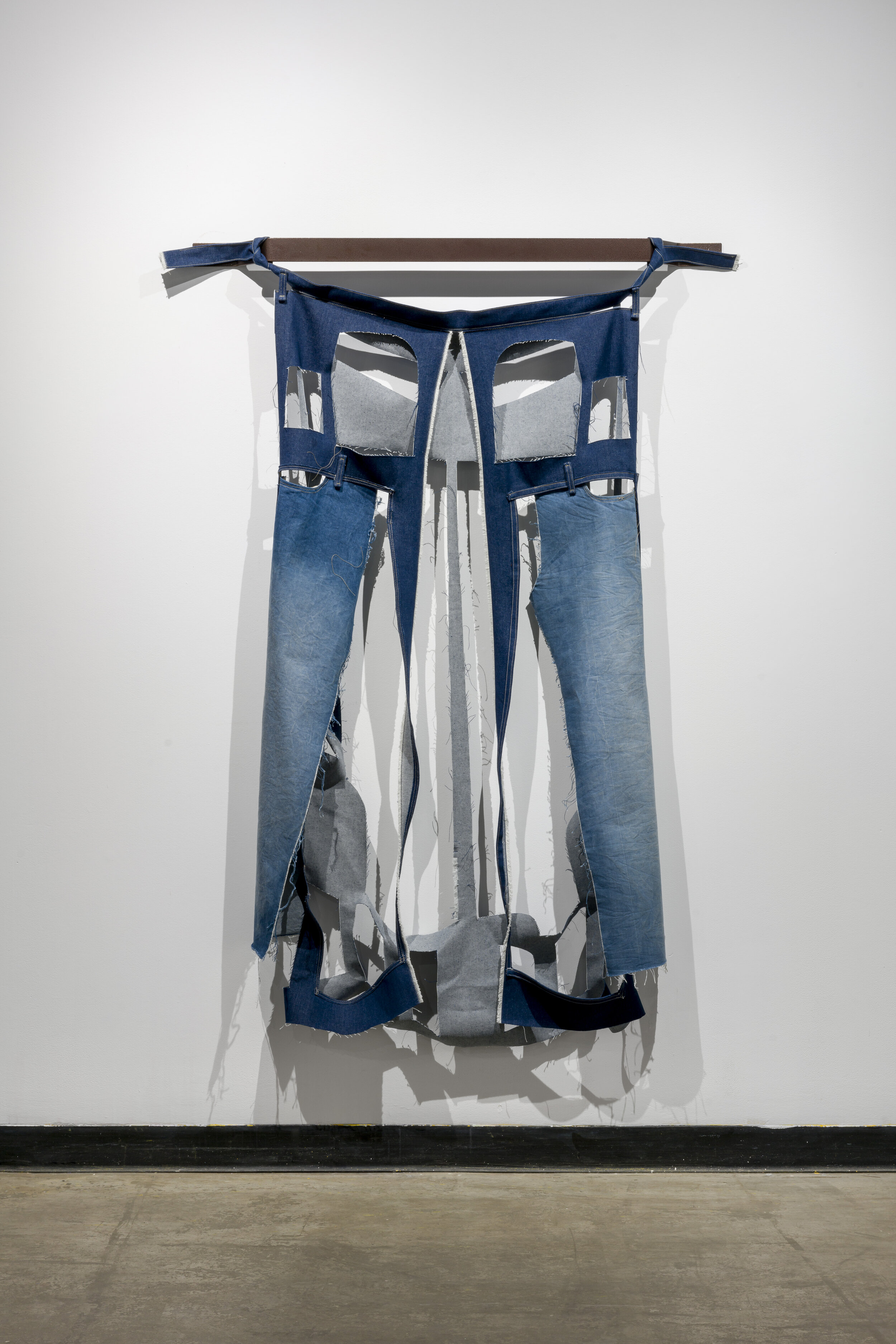
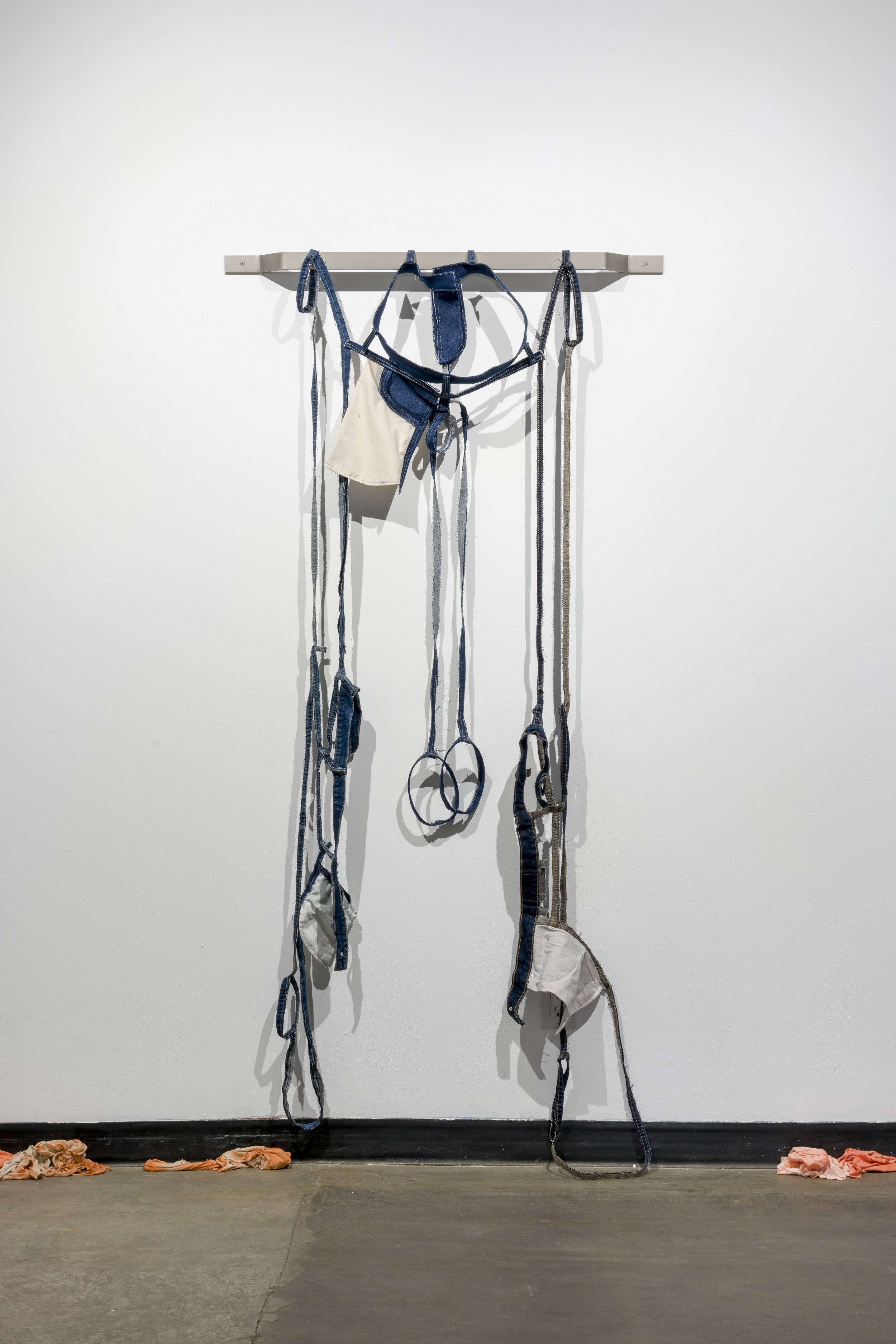
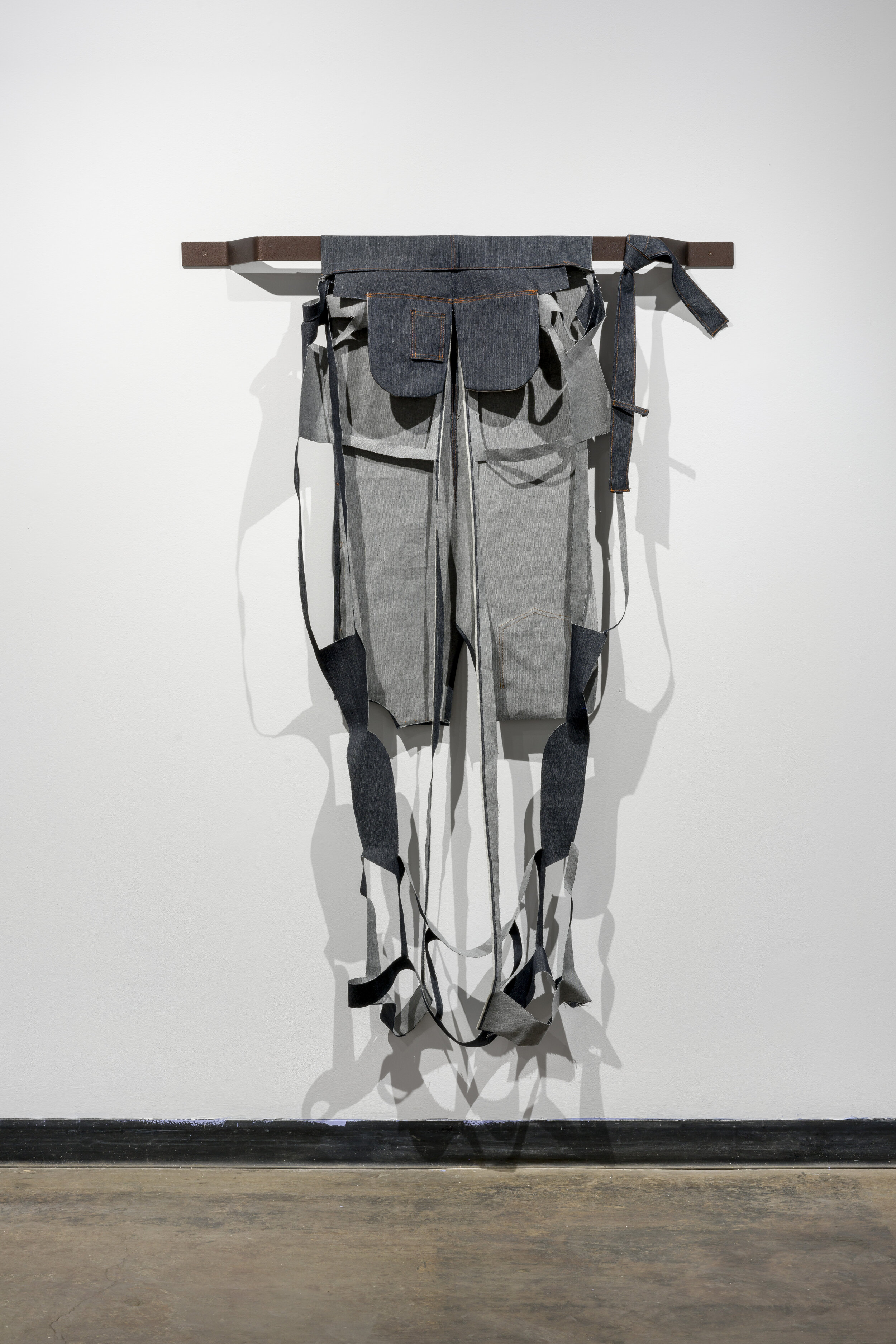
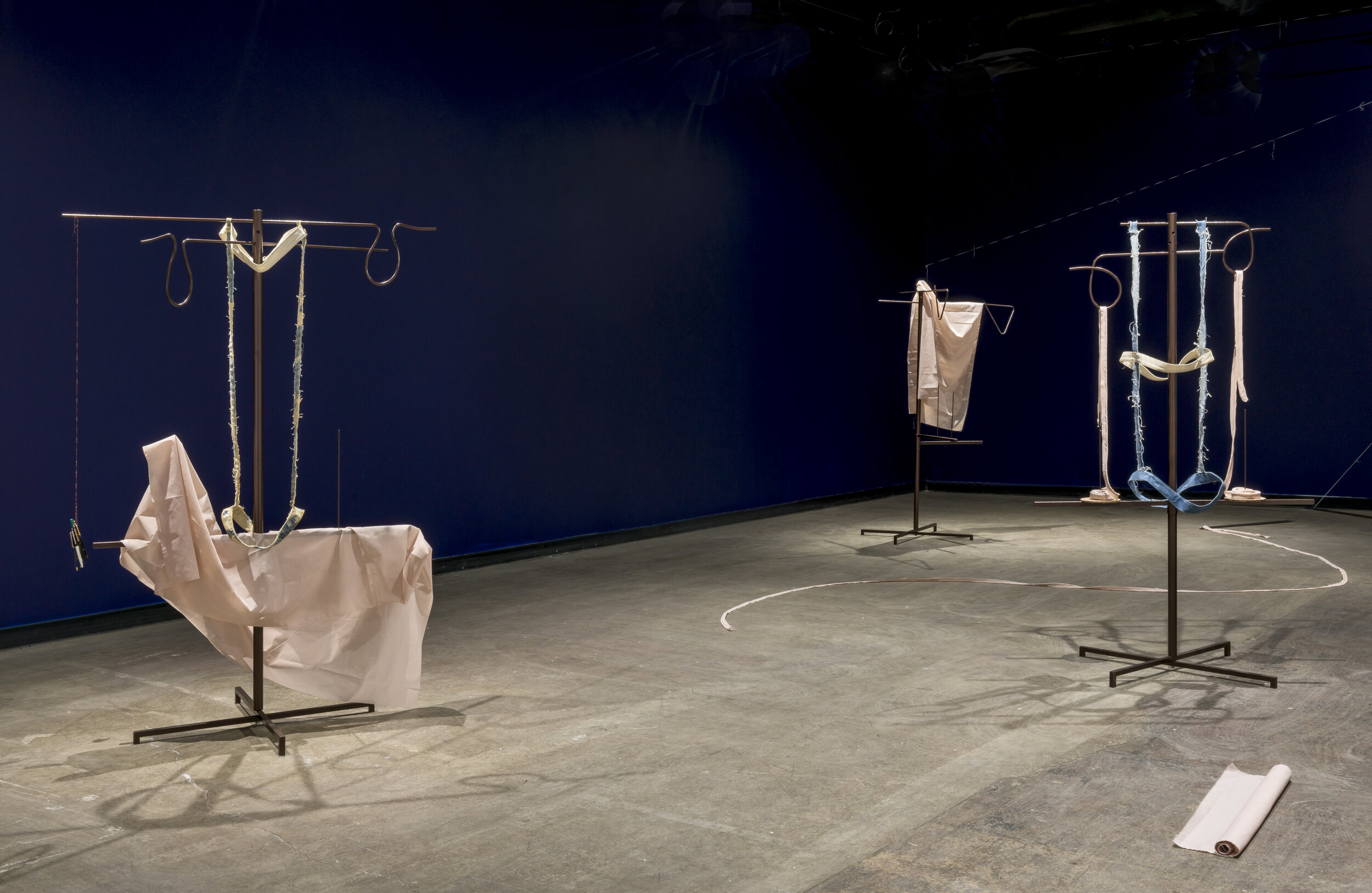
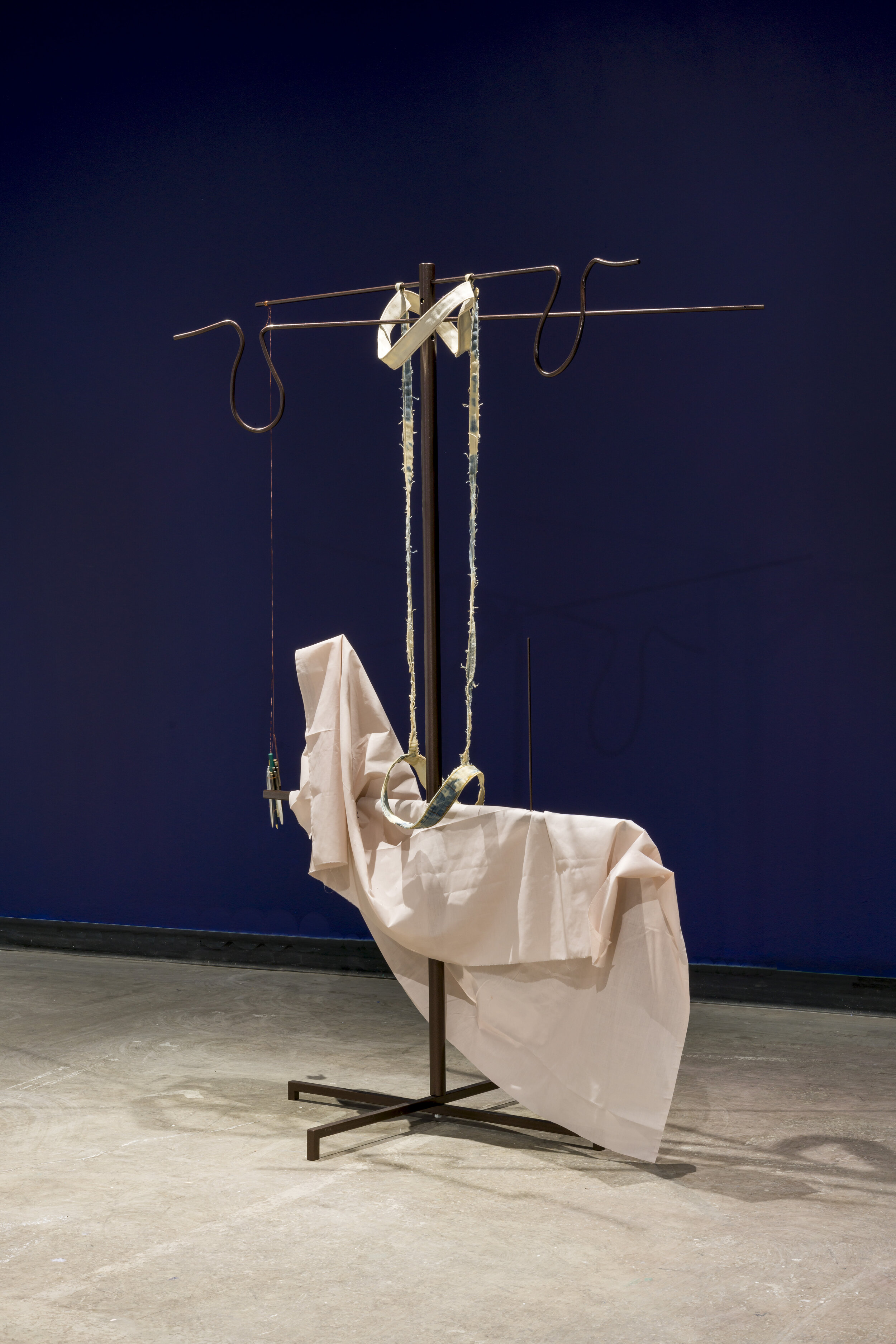
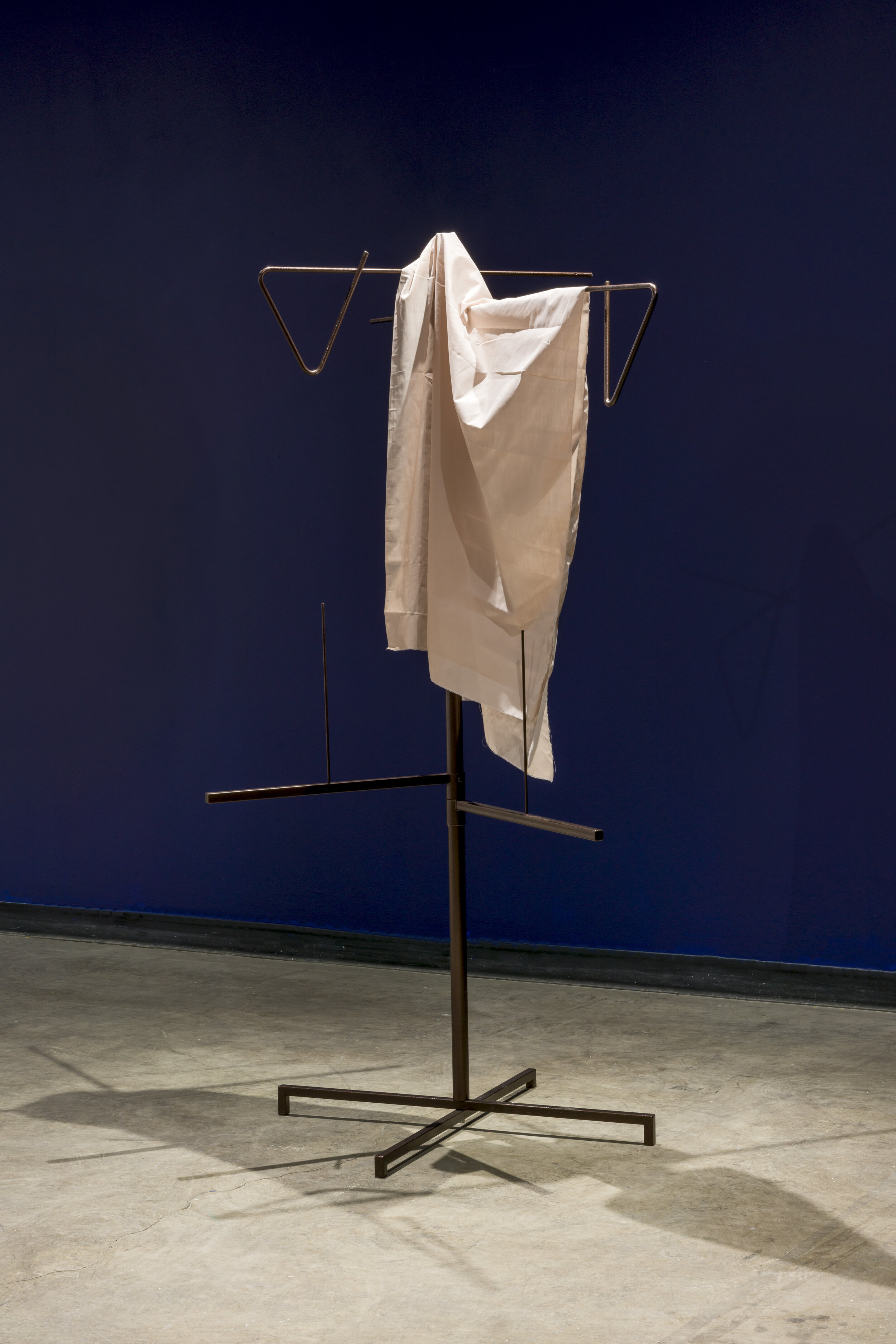
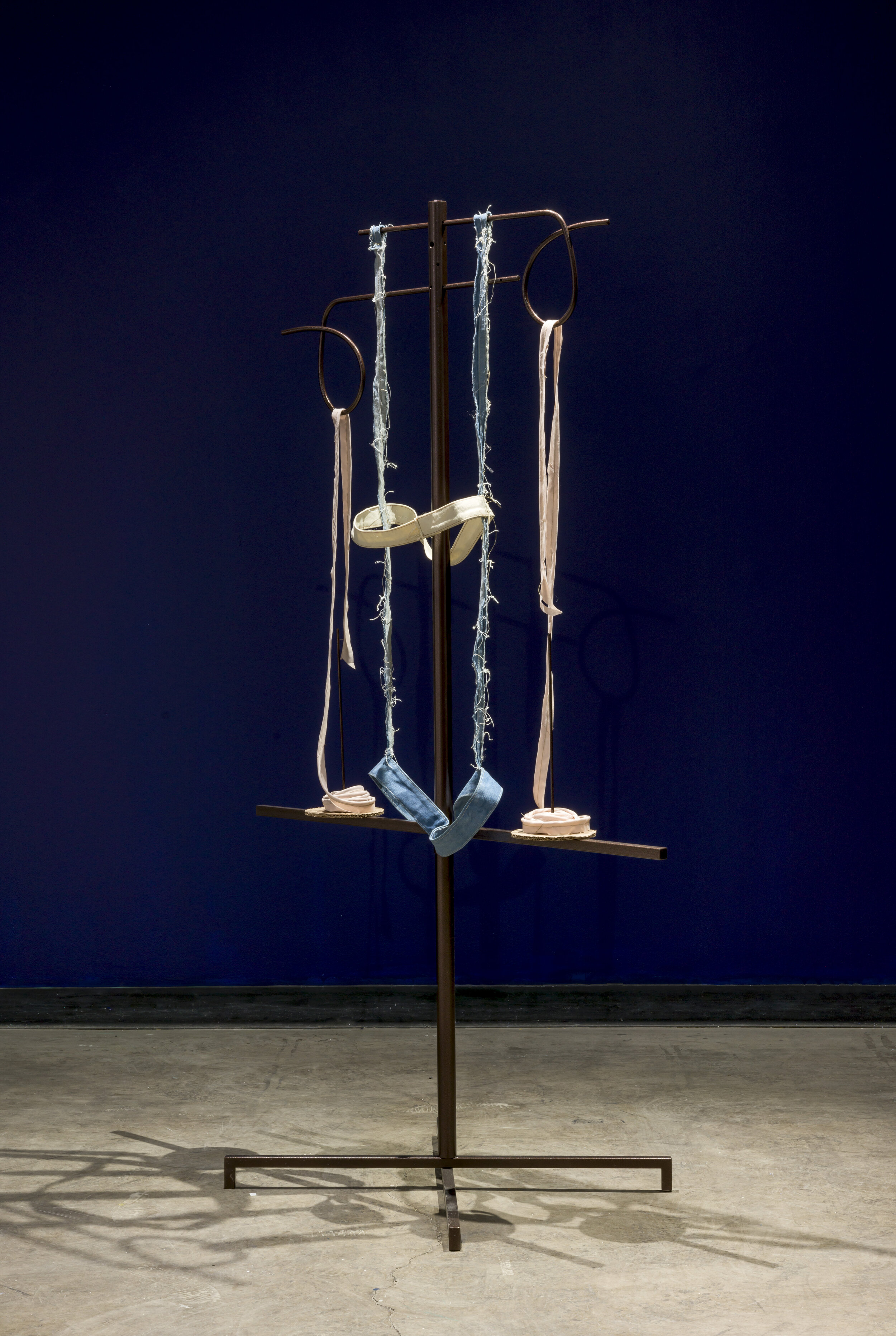
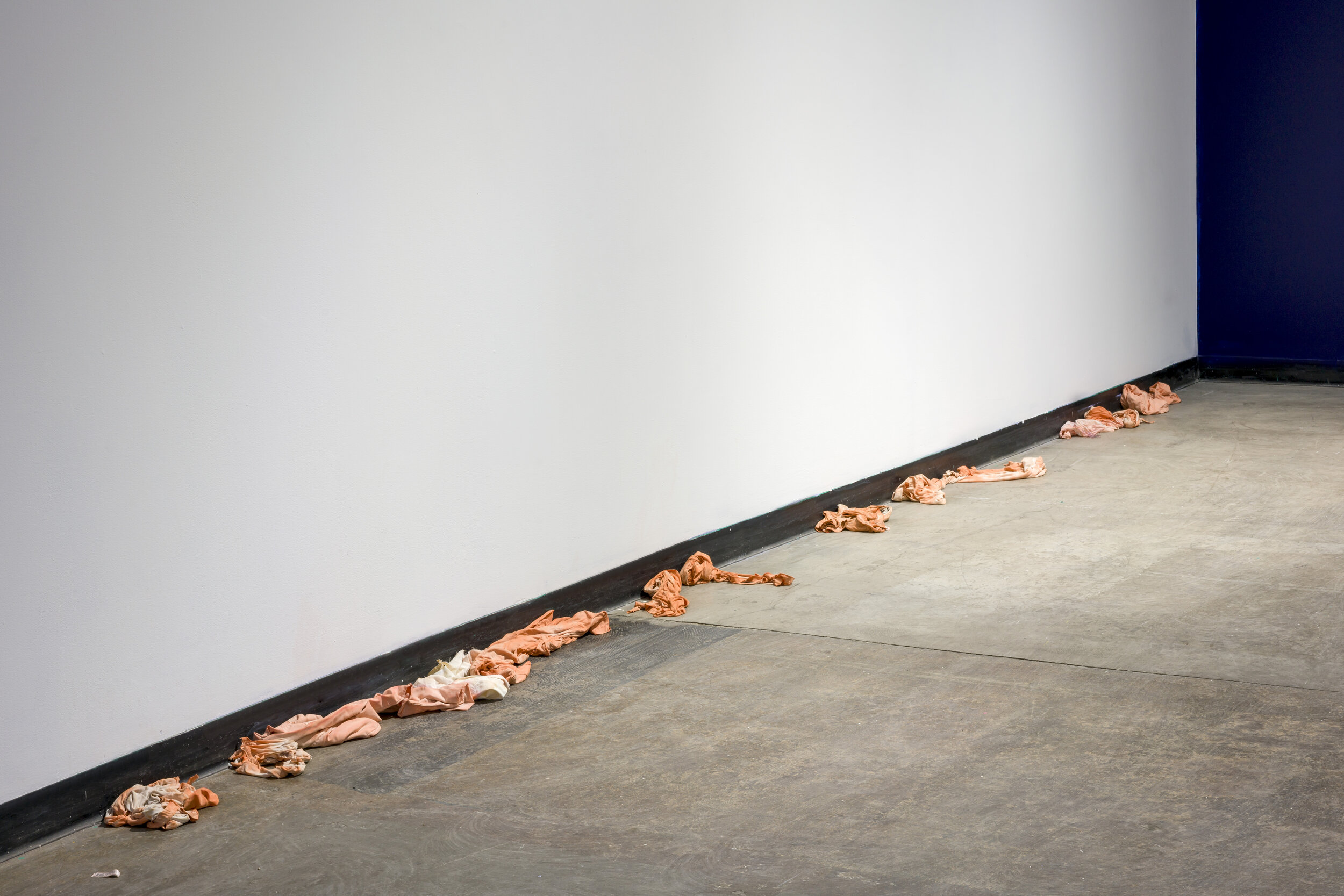
All images courtesy of Blaine Campbell.

